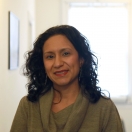
As a nation of immigrants, our country is constantly revitalized by new Americans who bring their talents, training, and energy when they settle in our communities. Still, though immigrants comprise over 15 percent of college-educated individuals in the U.S. workforce, they are disproportionately likely to be under- or unemployed.
One of the most significant barriers these immigrants and refugees face to making full use of their training and education is the complexity of licensing requirements. According to recent analysis by the Council of Economic Advisors, roughly 26 percent of immigrants with a bachelor’s degree or more hold a license, compared to about 35 percent of workers born in the United States.
In November 2014, President Obama created the Task Force on New Americans, a formal interagency body aimed at strengthening the federal government’s immigrant and refugee integration efforts and highlighting similar progress being made by communities across the country.
As part of its plan of action, last month the Task Force hosted the first-of-its-kind National Skills and Credential Institute. The forum generated a better understanding of how policies and practices affect credential attainment and facilitated the development of strategies to help skilled immigrants and refugees start, advance, and succeed in career pathways.
In March 2015, the Task Force issued a call for interested communities to share their own plans for tackling this issue. We were thrilled with the enthusiastic response from local communities and selected eighteen communities from seventeen states to attend the Institute.
The communities chosen demonstrated a true commitment to improving outcomes for skilled immigrants and refugees and to engaging critical community leaders that have a role to play in tackling this complex but incredibly important issue. These local coalitions include adult and post-secondary educational institutions; departments of labor, licensing, and regulatory affairs; immigrant-serving organizations; and external technical assistances providers, among others. Additional information on the work of these selected communities can be found here.
The kind of collaboration that took place at the Institute is critical to advancing the Task Force on New Americans’ efforts to reduce “brain waste” and help immigrants and refugees fully utilize skills and expertise learned abroad. By minimizing barriers to meaningful employment, we can maximize the economic opportunity and labor market success of all new Americans. Their talents and energy in turn contribute to our overall economic vitality and help to maintain the competitive global advantage we have worked to build.
As President Obama recently remarked, “What makes us Americans is our shared commitment to an ideal that all of us are created equal, all of us have a chance to make of our lives what we will.”
The innovative initiatives these eighteen communities have pioneered and are actively pursuing are an illustration of this very principle. With their help, we will continue our collaborative work to find new solutions to immigrant and refugee underemployment and unlock economic opportunity for all, including our newest Americans.
Felicia Escobar is Special Assistant to the President for Immigration Policy


